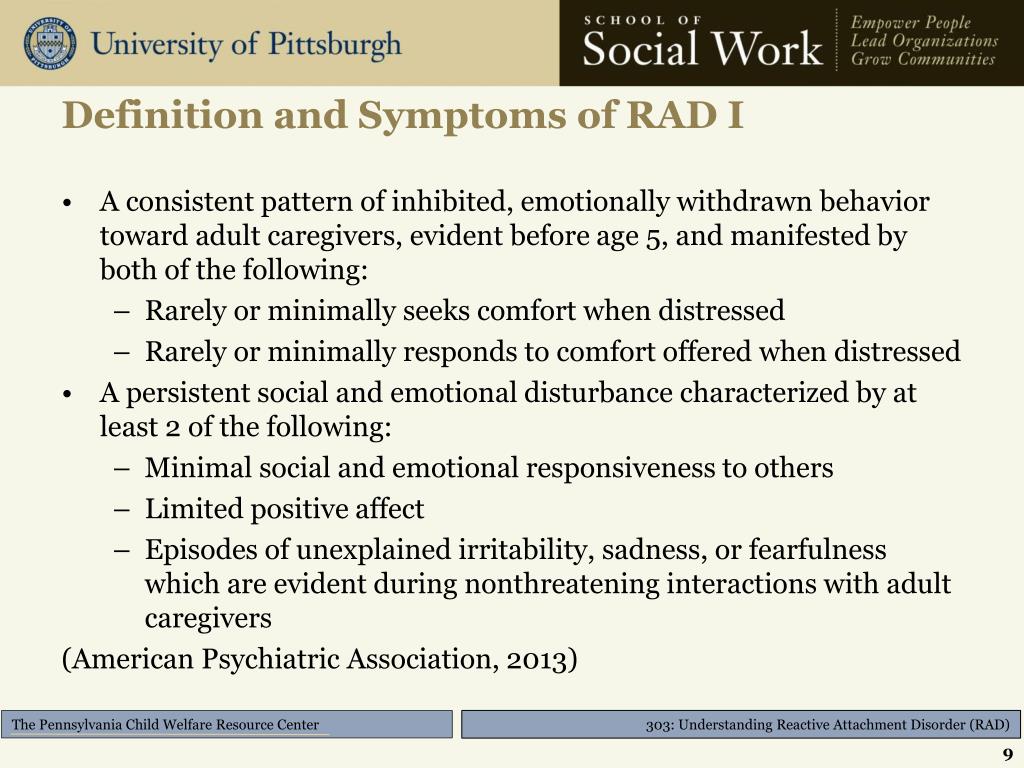

Frequent shifting of primary caregivers: For example, if a child bounces around with parents, grandparents, guardians, institutional care, or foster care, it may increase problems developing healthy emotional attachments.For example, if caregivers don’t look at, talk to, sing to, or play with a child, it can lead to attachment problems. Persistent neglect of a child’s emotional needs: withheld affection and care: RAD can occur when infants and toddlers don’t get the nurturing they need.Or an infant is hungry or wet and they aren’t attended to for hours. Disregard of a child’s basic physical needs: For example, a baby cries, and no one responds or comforts the child.Research shows that RAD can be caused by several factors, including: WHAT CAUSES REACTIVE ATTACHMENT DISORDER? However, a 2013 study in the British Journal of Psychiatry found that 1.4% of children in a deprived population experienced RAD. This makes it difficult to accurately estimate the prevalence of RAD. And 2016 research in Scientific World Journal found that children who aren’t treated for RAD may develop personality disorders when they reach adulthood.ĭespite the serious effects on a child’s life, many families are either unaware of the problem or never seek help. Children with RAD are typically at a higher risk for depression, low self-esteem, relationship challenges, learning difficulties, and oppositional behavior. Left untreated, RAD can have a negative effect on a child’s behavioral, emotional, physical, and social development. Reactive attachment disorder (RAD) is a condition in which children fail to establish healthy bonds with their primary caregivers, and it can have a negative impact on the rest of their life. When emotional care and nurturing is withheld from a child during their first few years, it can have a negative impact on the rest of their life. The child may have difficulties regulating distressing emotions and may have a flat affect (no smiles) during interactions with caregivers. A child might have RAD if there’s nothing neurologically or medically wrong with them, but they still can’t properly form attachments. It affects children who have received inadequate care from their parents or primary caregivers-typically their mothers before the age of 5.

Reactive attachment disorder (RAD) is a condition in which children fail to establish healthy bonds with their primary caregivers. Hormone Evaluation and Replacement Therapy.Marital Conflict and Relationship Issues.


 0 kommentar(er)
0 kommentar(er)
